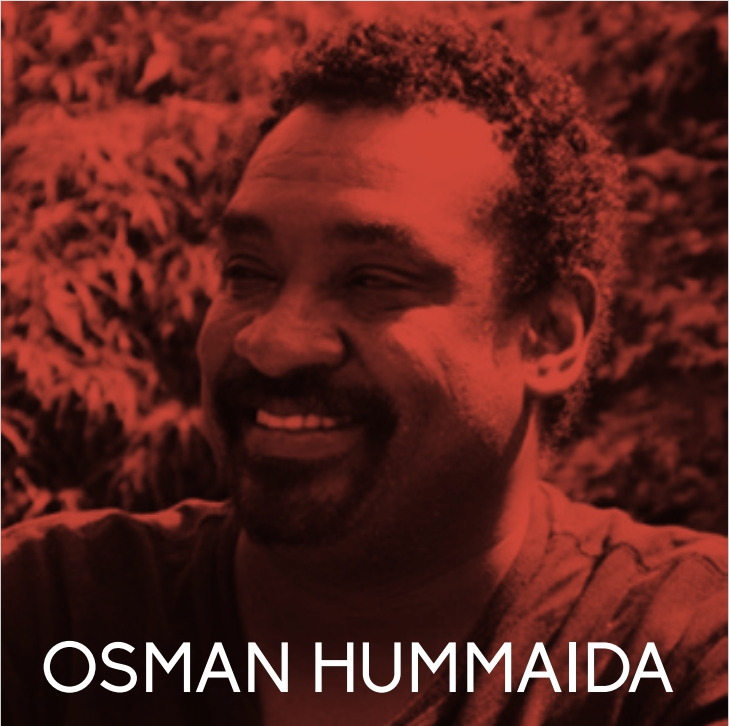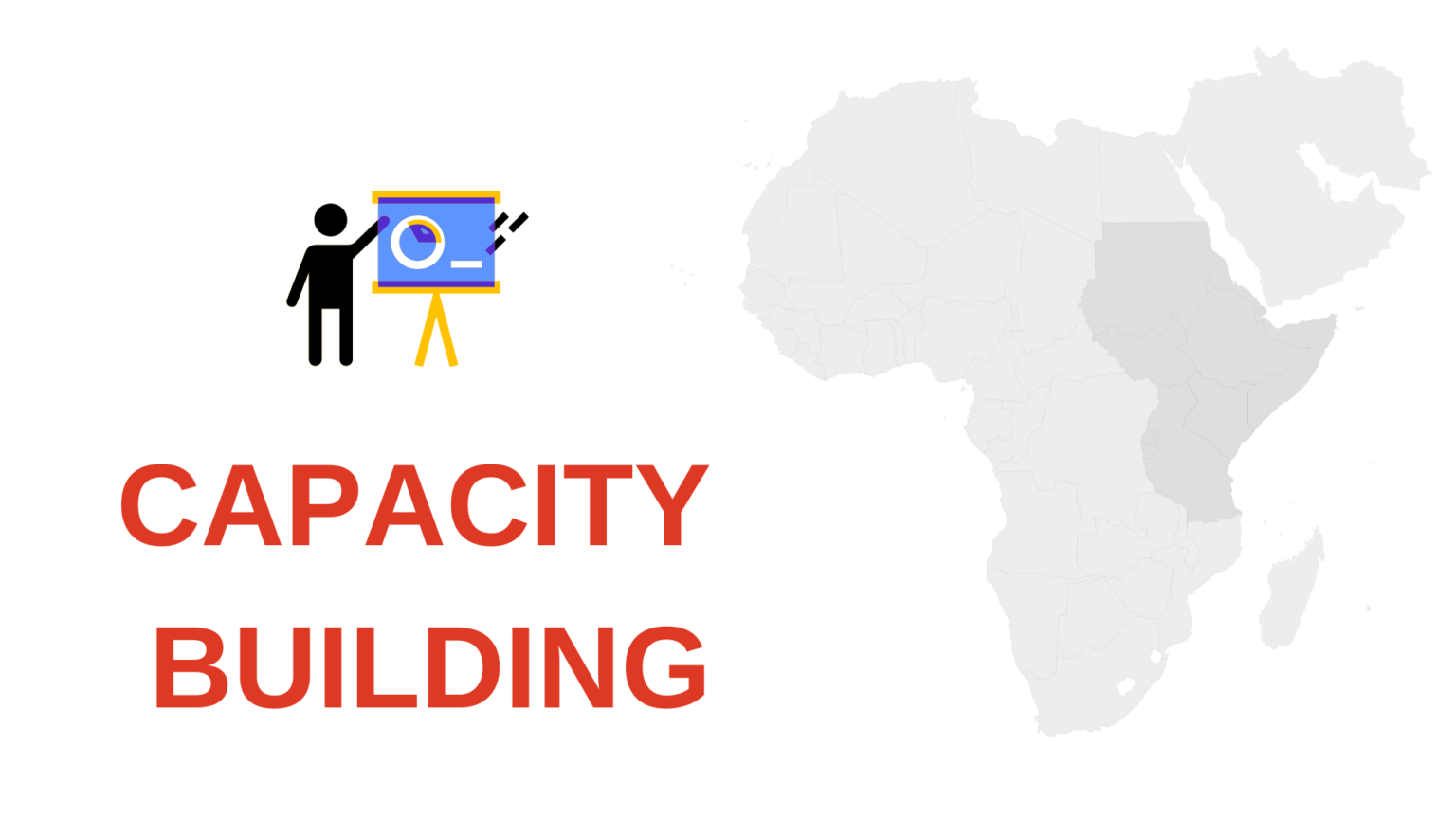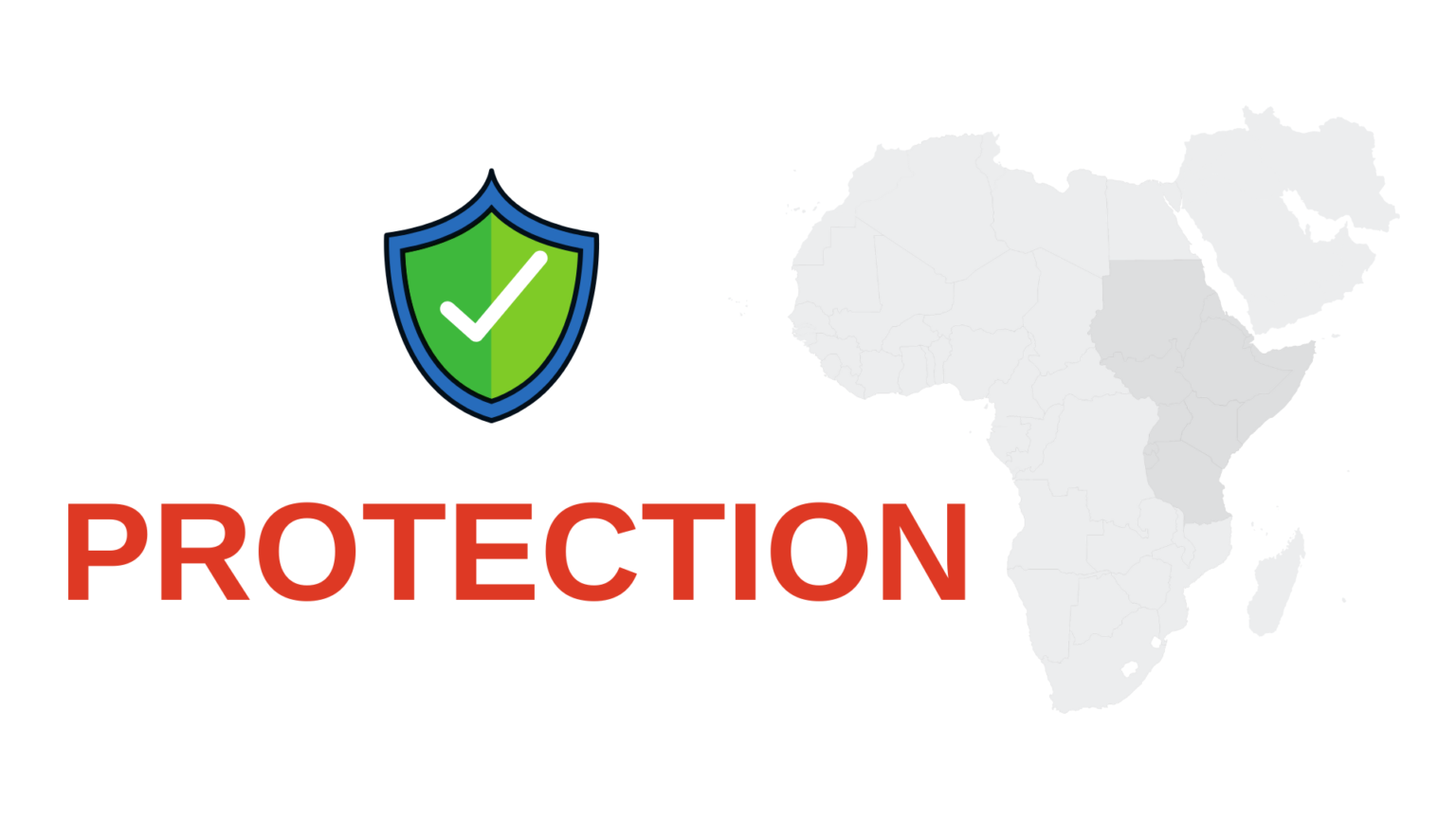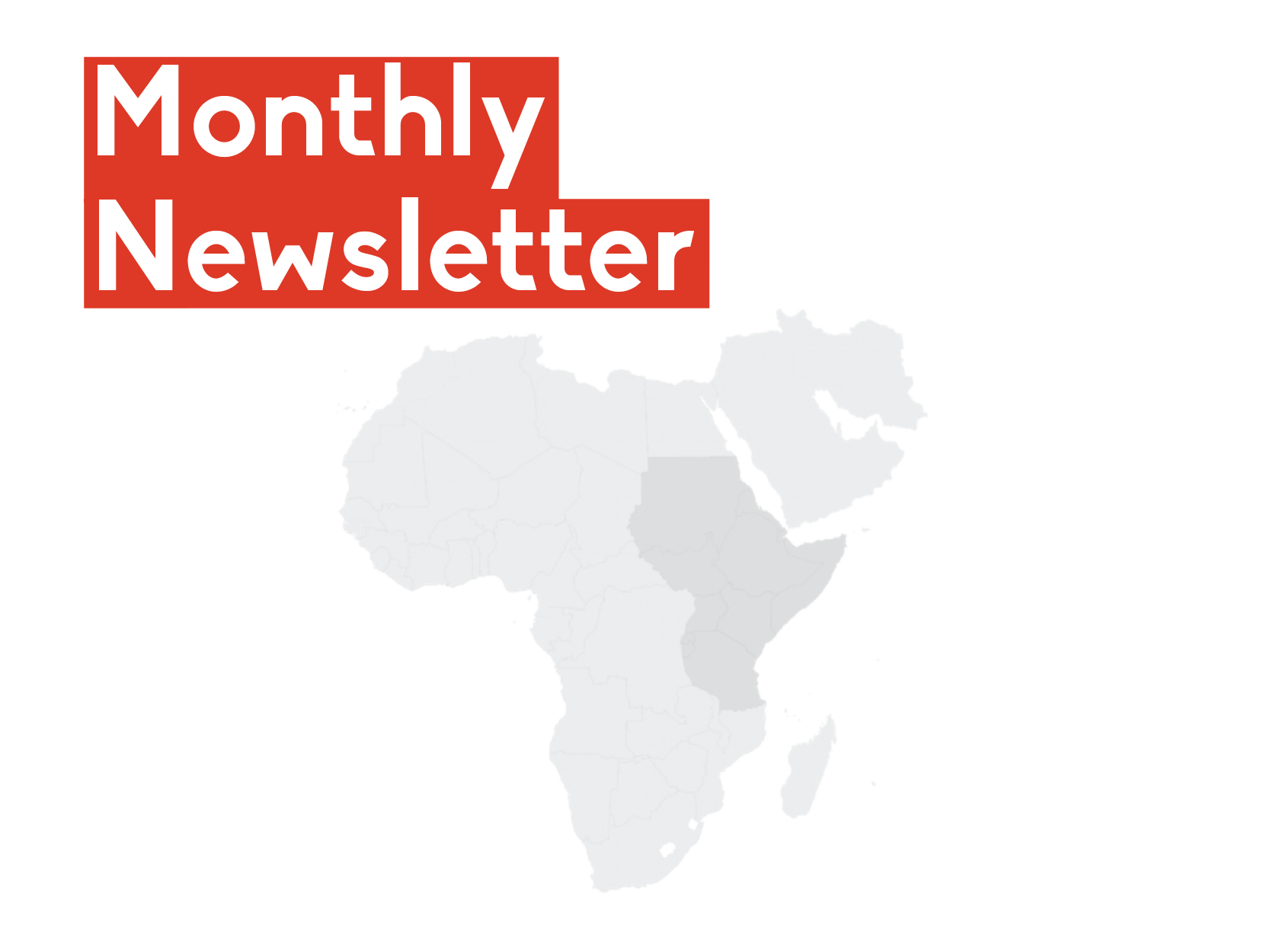Hello Friends,
As we step into 2025, this year marks 20 years since DefendDefenders’ was established to protect human rights defenders (HRDs) in Africa. In commemoration of this significant milestone, I am prompted to reflect on the journey since 2005.
I think back to the inaugural convening – “Defending the Defenders”: a Human Rights Defenders Conference in Entebbe, Uganda, in 2005—the moment it all crystallised. DefendDefenders was founded following extensive research that sought to identify the most pressing unmet needs of HRDs particularly regarding their personal security and effectiveness. Subsequently, forty-three HRDs from from Djibouti, Eritrea, Ethiopia, Kenya, Somalia and Somaliland, Sudan (including South Sudan), Tanzania (including Zanzibar), and Uganda came together, united by a common cause to establish a network that would meet the identified needs . From those discussions, my vision of supporting HRDs in their work was reaffirmed —the need to create a safe and supportive environment for HRDs facing threats.
Twenty years later, I am proud to see that vision realized through what is now DefendDefenders. What started as an idea has grown into a strong and supportive network—bound by solidarity and a shared commitment to upholding human rights. This journey has far exceeded my expectations, and I am deeply grateful for all we have achieved together.
Over the next 11 months, we will honor HRDs—both living and posthumously—who played a pivotal role in realizing this vision and establishing DefendDefenders. We will also document the 20 years of progress DefendDefenders has made in supporting HRDs across the continent. This journey will be showcased on our social media platforms, and I encourage you to walk down memory lane by using #20YearsDefending and engage with the content throughout the anniversary celebrations.
While we celebrate this milestone, it is also a time to reflect on the future of HRDs, especially during these challenging times exacerbated by conflict, shrinking civic space, and limited resources to support their crucial work. We must all renew our commitment to defending human rights and safeguarding civic space. HRDs across Africa continue to push back against repressive laws and policies, working tirelessly to uphold fundamental freedoms.
As always, DefendDefenders remains steadfast in its commitment to protect those who risk their lives for freer civic spaces. I invite you to turn the pages for details of our engagements this month and encourage you to join us as we look to the future with renewed dedication.
Hassan Shire
Executive Director, DefendDefenders
Chairperson, AfricanDefenders
Human Rights Defender of the Month: Osman Hummaida - POSTHUMOUS

The human rights movement in Sudan traces back to the 1980s, with the establishment of the Sudanese Human Rights Organisation (SHRO) during the second democratic period (1985–1989). Operating in a relatively free environment under the democratic regime, various civil society organisations emerged, focusing on environmental issues, and human rights including women’s rights. However, after the 1989 military coup led by the National Islamic Front and Omar al-Bashir, the space for civil society vanished. Many human rights organisations, including SHRO, relocated to Egypt, the UK, and the USA, continuing their work in exile. Organisations like SHRO focused on documenting and monitoring human rights violations, which worsened under the Bashir regime. One of the most infamous abuses documented was the systematic use of torture in secret detention centers known as “ghost houses.” Thousands of Sudanese—politicians, students, and activists—were subjected to physical and psychological torture in these facilities.
Osman Hummaida, born in 1960, emerged as a fearless human rights defender in this challenging environment, dedicating his life to exposing human rights violations and seeking justice for victims. His human rights activism began during his time at the University of Khartoum, where he was a politically active student. After graduating, he worked at the Ministry of Finance in the early 1990s. While there, he was part of a group of civil servants mobilising others to lay down their tools in protest against the government’s repression of civil society organisations and opposition party members. When the government got wind of the upcoming protest, Osman was arrested, detained, and tortured in a secret detention center, often referred to as a “ghost house.” Following his release, he was dismissed from his job. In 1993, he fled to the United Kingdom, where he continued his work, focusing on supporting torture survivors and advocating for human rights in Sudan. He joined the Sudanese Group for Victims of Torture (SGVT), quickly rising to become its Executive Director. SGVT provided medical and psychosocial support to hundreds of Sudanese torture survivors in Sudan and outside Sudan, collaborating with institutions such as the El-Nadeem Centre in Cairo. The organisation published reports and raised international awareness about human rights violations in Sudan. Later, SGVT rebranded as the Sudan Organisation Against Torture (SOAT). Under his leadership, SOAT expanded its work, providing critical medical and legal support to victims while amplifying their voices on international platforms.
Osman regularly attended sessions of the UN Human Rights Committee, the UN Human Rights Council (HRC), and the African Commission on Human and Peoples’ Rights (African Commission), advocating for action against human rights violations. His lobbying contributed to the UN Security Council’s decision to refer the Darfur situation to the International Criminal Court (ICC). A pioneer in human rights education, he led the 2003 Human Rights Conference in Khartoum, the first of its kind in Sudan. This landmark event brought together activists, academics, government officials, and international organisations, leading to recommendations for integrating human rights into Sudan’s education curriculum.
Recognising the power of strategic litigation, Osman worked closely with organisations like Amnesty International and Human Rights Watch. He facilitated landmark cases before the African Commission and used international mechanisms to hold the Sudanese government accountable. His collaboration with the Darfur Consortium strengthened African-led advocacy for justice in the region.
On 24 November 2008, Osman Hummaida was detained in Sudan alongside his colleagues Amir Suleiman and Monim El Jack. The three had been advocating for human rights in Sudan, particularly focusing on international justice and the ICC investigation into crimes committed in Darfur. During their interrogation, the National Security Service (NSS) accused them of assisting the ICC’s probe into Darfur and subjected them to severe torture, denying Osman medical care before his release. Given the open-ended and serious accusations of spying leveled against them—amplified by pro-government Sudanese media—and the real risk of rearrest, Osman and Monim Elgak left the country in December 2008, as it was no longer safe for them to be in Sudan. In 2009, following the ICC’s issuance of an arrest warrant for President Omar al-Bashir, the Sudanese government retaliated by shutting down 13 key human rights organisations, confiscating their assets, and forcing Osman and his colleagues into exile once again.
While in exile in Kampala, Uganda, he co-founded the African Centre for Justice and Peace Studies (ACJPS), to bring more light to the human rights violations not only in Sudan but across the African continent. Through this new venture, Osman sought to build a network of advocates committed to justice, in a place where voices of hope could be united in a call for peace.
Osman was one of the founding members of the East and Horn of Africa Human Rights Defenders Network and played a pivotal role in its early development. He attended the first conference, “Defending the Defenders”: a Human Rights Defenders Conference, held in Entebbe, Uganda, in 2005, where the foundation for the network was laid. Beyond the conference, Osman remained deeply engaged with the network, significantly enhancing DefendDefenders’ visibility, impact, and work in Sudan. His contributions strengthened the protection and promotion of the work of Sudanese HRDs, ensuring that their voices were heard even in the most repressive environments. His dedication to justice and human rights left a lasting imprint on the mission and growth of DefendDefenders, shaping its efforts to protect HRDs across the region.
On 17 April 2014, Osman passed away in Johannesburg, South Africa, marking a significant loss to the global human rights community. He was widely described as a dedicated and passionate advocate for justice and peace. In a tribute to him, DefendDefenders described him as “a leading Sudanese human rights defender and an inspiration to countless activists in the international and African human rights communities.”
Even after his passing in 2014, his legacy endures through his work and the many HRDs he mentored. His unwavering commitment to justice continues to inspire those fighting for a free and democratic Sudan.
Updates from DefendDefenders

From 20 – 22 January 2025, DefendDefenders conducted an online digital security training for 20 Francophone HRDs working online in Africa. The training aimed to enhance their capacity to effectively mitigate, manage, and respond to digital security risks and threats.
From 20 – 24 January 2025, our team, together with the South Sudan Human Rights Defenders Network, conducted an advocacy training for 25 HRDs. The training aimed to help them understand how to engage with regional and international mechanisms to strengthen their advocacy efforts and enhance their human rights work.
From 27–29 January 2025, DefendDefenders’ team team conducted a follow-up workshop and trained 10 HRDs from 10 organisations in physical and digital security management within Kampala district. The training equipped HRDs with knowledge and skills in managing physical and digital security at the organisational level. Emphasis was placed on digital security management, including safe and secure ways of data and information storage, backups, account security management, secure communication tools, device hygiene, and anti-hacking detection measures. Additionally, the HRDs were supported and guided in updating and renewing their organisational security plans.

On 23 January 2025, AfricanDefenders convened the second annual New Year Checkup call, hosted by AfricanDefenders Chairperson and DefendDefenders Executive Director, Hassan Shire. The call focused on reflecting on the past year’s challenges and strategising for the future. The Chairperson highlighted key issues facing HRDs, including geopolitical instability, shrinking civic space, arbitrary arrests, and declining funding for civic and democracy work. Discussions also covered specific country challenges, such as transnational repression in Kenya, legal restrictions in Cote d’Ivoire, and escalating conflict in the DRC. The meeting concluded with a call for greater continental unity, collective action, and a commitment to protecting HRDs and expanding civic space.

From 1 – 31 January 2025, DefendDefenders received and handled a total of 103 requests for support from HRDs at risk. Out of the total requests received; 27 requests were approved for the life-saving interventions. A total of 29 beneficiaries indirectly gained from the granted support. A total of 21 requests were referred to various partner organisations.
Country Updates:
UGANDA
In January 2025, prominent Ugandan opposition leader Dr. Kizza Besigye faced significant legal challenges. On January 14, a military court ruled that Besigye could be tried on charges of treachery, which carry the possibility of a death sentence. This decision was met with widespread criticism, as trying civilians in military courts is considered a violation of fair trial rights.
However, on January 31, 2025, Uganda’s Supreme Court declared the prosecution of civilians in military courts unconstitutional and ordered an immediate halt to such proceedings. This landmark ruling was expected to impact Besigye’s case directly.
On 7 January 2025, human rights lawyer Eron Kiiza was arrested at the General Court Martial in Makindye, Kampala, while representing opposition leader Dr. Kizza Besigye. Military personnel prevented Kiiza from accessing the defense area, leading to a confrontation during which he was assaulted and detained. He was swiftly convicted of contempt of court and sentenced to nine months in Kitalya prison without a fair trial.
On 9 January 2025, human rights activist and lawyer Agather Atuhaire, along with six other activists, were arrested in Kampala while attempting to march to the Supreme Court. The protest sought to draw attention to the prolonged detention of civilians in military courts and the judiciary’s delay in ruling on the jurisdiction of military courts over civilians. The group was detained at Kampala Central Police Station and charged with common nuisance.
ETHIOPIA
In January 2025, DefendDefenders and other civil society organisations co-signed a statement condemning the Ethiopian government’s suspension of key human rights groups, including the Ethiopian Human Rights Council (EHRCO) and Ethiopian Human Rights Defenders Center (EHRDC). The statement called for the reinstatement of these organizations, criticized the government’s actions as part of a broader effort to stifle civil society, and urged the international community to apply pressure on Ethiopia to respect human rights and protect defenders.
KENYA
On 12 January 2025, Tanzanian activist Maria Sarungi Tsehai was abducted outside a Nairobi salon in broad daylight. Unidentified men, claiming to be police officers, pulled her from a taxi around 3 p.m. and forced her into a van. They blindfolded her, choked her, and restrained her with handcuffs, pinning her down by sitting on her feet. Her abductors confiscated her phones and repeatedly demanded access to her social media accounts, which she refused to provide. Hours later, they released her on the city’s outskirts but kept her devices. Maria believes the abduction was an attempt to access her digital communications, likely connected to her activism and criticism of the Tanzanian government. Having fled Tanzania in 2020 after facing escalating threats under the late President John Magufuli’s administration, Maria had raised alarms about her safety in recent months, citing incidents of unknown individuals searching for her at her residence. These events add to growing concerns over the use of enforced disappearances as a tool to suppress dissent, raising critical questions about state accountability and the protection of civil liberties in Kenya.
On 14 January 2025, Public Service Minister Justin Muturi, in a written statement to police, alleged that the National Intelligence Service (NIS) was responsible for his son’s abduction during the June 2024 anti-government protests. Muturi stated that his son, Leslie, was taken by “armed, hooded gangsters” and was only released after President William Ruto personally intervened. He described visiting the presidential residence on 23 June 2024, where Ruto then called NIS Director-General Noordin Haji to secure Leslie’s release. This incident highlights the escalating concerns over state involvement in abductions and the broader implications for the protection of human rights and freedoms in Kenya.
On 15 January 2025, frustrated patients disrupted a media conference held by the Health Cabinet Secretary to protest the poor quality of services under the Social Health Authority (SHA). Despite paying monthly premiums, they reported severe delays in accessing treatment due to systemic failures, forcing them to spend excessive amounts on daily hospital visits, some for over a week. Grace Njoki Munai led the protest, accusing Kenyatta National Hospital (KNH) of neglect after waiting seven days for treatment. On 23 January, DCI officers arrested her and forcibly removed Grace Mulei from Ladnan Hospital, where she was seeking medical care. Authorities detained Njoki at Capitol Hill and charged her with creating a disturbance in a government office, denying her bail in violation of Article 49(1)(h) of the Kenyan Constitution. Despite requiring urgent knee surgery and suffering from hypertension and diabetes, she spent a night in detention. A court later granted her bail at Sh 10,000 and scheduled her next hearing for 7 February. Following public outcry, the Ministry of Health (MoH) withdrew its case against Njoki on 30 January. The National Assembly announced the decision after a mid-term MPs’ retreat.
On 16 January 2025, the Kenyan government ordered social media companies to establish physical offices in the country, citing the need for accountability and measures against the misuse of digital platforms. The directive followed months of tension over critical online content targeting top officials, including President William Ruto. Relatedly, on 28 January 2025, ICT and Digital Economy Cabinet Secretary William Kabogo warned that the government could shut down social media platforms if national security is at risk. While he stated there were no immediate plans to disrupt internet access, he emphasised tighter regulation of online spaces and warned against misuse, citing potential prosecution under the Misuse of Computer and Cybercrimes Act. Both measures reflect the government’s increasing efforts to control digital spaces, as officials justify these actions by claiming they are necessary to combat disinformation, online abuse, and incitement. However, it could be argued that such directives are veiled attempts to stifle dissent and restrict online political expression. Furthermore, civil society groups warn that these regulations undermine free speech and set a dangerous precedent for suppressing digital rights under the pretext of national security.
Unknown assailants killed human rights defender Raymond Otieno in Molo on 18 January 2025. Authorities discovered his body near his apartment gate. Reports reveal that he had received death threats before his murder. The Directorate of Criminal Investigations (DCI) confirmed that expert analysis determined his cause of death as a severe head injury caused by both blunt and sharp force trauma. His killing triggered public outrage and protests.

